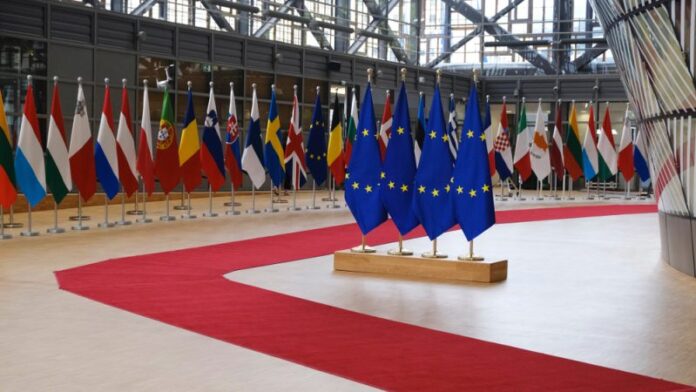At a Working Party on Telecommunications and Information Society meeting on Wednesday (15 February), European governments all seemed to agree the digital dimension of the EU’s foreign policy needs to be enhanced, but how to do it still needs to be decided.
The discussion at the meeting of the EU Council’s main technical body that deals with digital affairs was prompted by a proposal to open an office of the International Telecommunication Union (ITU), the UN telecom agency in Brussels. ITU’s regional office is in Geneva, therefore, the new office would be a secondary office to enhance coordination with the EU.
The new office was pitched by Tomas Lamanauskas, ITU’s recently elected deputy secretary-general, as part of a broader effort to better engage with participating countries at the regional level worldwide. However, discussions in the EU Council accelerated after EURACTIV revealed the idea.
ITU office
Portugal took it upon itself to circulate a discussion paper obtained by EURACTIV to stimulate a debate on strengthening the relations between the EU and the UN agency.
“The EU is an important actor on the global scene, but lack of coordination between MS [member states], the Commission, and ITU consequentially renders European potential largely unutilised,” the paper reads.
The document suggests that the EU’s global role in digital affairs needs to be reinforced by defining common priorities, focusing on strategic countries and investing in regional partnerships.
The recent elections of ITU’s leadership, which included the American Doreen Bogdan-Martin for the top post and Lamanauskas as her second, are presented as proof of Europe’s capacity to get its way when speaking with a sole voice.
An even more important example is when in February 2022, Western countries prevented China from passing the principle that ITU could regulate internet governance, which would have made Beijing’s vision for a state-controlled internet more likely.
Broader discussion
One of the key reasons for bringing ITU closer to the decision-making process in Brussels was that technical coordination currently takes part mostly between the national governments and agencies in the European Conference of Postal and Telecommunications (CEPT).
“Everybody was on the same page regarding the need to strengthen the coordination among the European Union and the member states, as many feel that, in the CEPT, it’s not only the EU, but other European states as well are a bit underrepresented,” an EU official told EURACTIV.
The CEPT is traditionally dominated by the UK, which sends plenty of experts and therefore manages to shape the agenda in a way that is not necessarily in line with the EU’s interests. However, some member states noted nothing is stopping the EU from sending more experts.
In other words, the idea of ITU setting up shop in Brussels was not met with unanimous support among the member states, with Germany being particularly critical, as that raises several practical questions regarding staffing and financial resources.
However, according to two EU diplomats, the ITU office is not an end per se since the point was to raise the broader question of having a higher level of coordination and engagement in international fora like ITU to bring European contributions on the global stage better.
“It’s not about one concrete measure. It’s about the set of goals and tools that need to be discussed within the Working Party,” one of the two EU officials told EURACTIV.
Coordination mechanism
Last July, EU ministers gathered in a Foreign Affairs Council meeting called in their conclusions for the need “to ensure that Digital Diplomacy becomes a core component and an integral part of the EU external action.”
Countries like Denmark, Portugal, France, Spain, Greece, Hungary, Poland, Bulgaria, the Netherlands, Lithuania, Finland and Slovakia all spoke out in favour of a coordination mechanism, which is set to involve the European Commission, the European External Action Service and member states.
A non-paper is currently in preparation to urge the Commission to put forth a proposal in this sense. However, one of the critical issues that emerged during the discussion is whether the EU Council’s internal structure is up to the task.
The argument that the institutional structure is outdated and would benefit from being reformed is not new. In November, the Czech presidency relaunched an all-powerful Digital Council that would merge the competencies of several other bodies.
Whilst the Telecom Working Party traditionally gets most of the digital policy files, two crucial files of this mandate, the Digital Markets Act and Digital Services Act, were assigned to different Working Parties.
Meanwhile, the Horizontal Working Party on Cyber Issues deals with cyber diplomacy, which would need to be integrated into a broader approach to Digital Diplomacy. Still, there needs to be a clear majority in favour of such restructuring.
[Edited by Alice Taylor]









